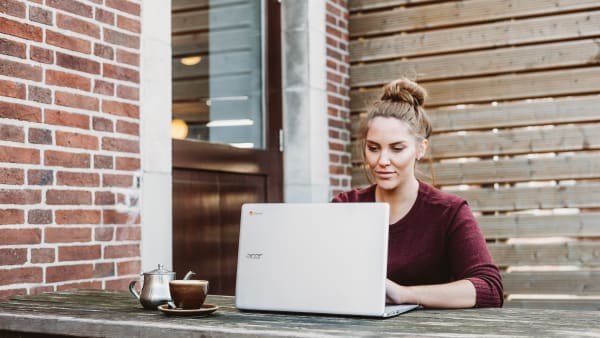A revolution is shaping desks and drawing boards across the world. During the last 20 years, the workforce has drastically changed.
At first, these changes were small, almost imperceptible, but now they are impossible to avoid. The Covid-19 pandemic has continued to make seismic waves across an already fluctuating system.
When one considers the workforce and what it is, you first need to think about society itself. Factors such as politics, economics, climate change and population expansion will all act as contributing factors to how the workforce shifts and changes.
Of course, there are many things that have shaped current society, but arguably the biggest recent catalyst for change has been technology. Technology has irrevocably changed many aspects of daily life and in doing so has changed the landscape of the workforce.
5 Trends Changing The Nature of Work
There are several key trends that are the main drivers of the evolution of today's way of working.
1. AI And Automation
A world of technology creates a world without boundaries, and as such, today's current workforce will experience many traditional workplace limitations being broken down or slowly becoming obsolete.
Technology these days is intuitive and quick on the uptake, meaning that the expectation is high for both technology and human employees. As technology increases its advances, and data science enables more use of AI, many job roles will require more technical skills of its workforce.
Employment that offers training programmes and encourages employees to upskill will be much more popular than employment that doesn't.
2. Ways Of Working (WOW)
Technology's progression means that, in theory, employees can work anytime and anywhere. This is largely viewed as a positive factor in today's working world, meaning reduced commuting times (and therefore pollution), a decrease in office expenses, and the opportunity for employees (in theory) to fit their work life around their personal life, which may include family or other work.
This new way of workingcan also be a catalyst for economic growth in remote areas.
Essentially, 'WoW' denotes employment or work that operates outside the perceived societal norms of a set time, and a set space. The emphasis of this style of work is on performance, rather than a physical presence in an office for a particular amount of time.
This could mean increased pressure in one sense for an employee, but a decrease in pressure in the sense of freedom of working up to a personal capacity. Either way, WOW relies on trust from the employer, and personal discipline from the employee, as well as exemplary employment relations.
3. Social Causes & Movements
Employees these days tend to align their social and political values with their work; work is increasingly an extension of self, an expression of personality and belief.
Social causes and politics can often be divisive, however, and while businesses are more diverse than ever, and there is increasing interest in multinational companies from jobseekers, employers will need to work hard to stay on top of alignment with causes in a genuine way that will create harmony in their business team.
4. Gen Z And Millennials
A large proportion of the current workforce is made up of either Generation Z or Millennials. Generation Z is defined as the generation that was born between 1997-2015, while Millennials were born between 1981 – 1997. This means that although these two generations have much in common to connect them, there are some disparities between the two that will shape their perceptions of the world and how they prefer to interact with it.
For example, Generation Z will have been brought up with smart technology as an everyday occurrence. However, this apparent convenience and swift pace would have been placed alongside growing up in a recession. This means that Generation Z is more likely to be competitive over salaries, keeping a lookout for comparable competitive rates, and will also be more willing to be digitally nomadic; i.e. hot-desking or working remotely.
Millennials are a generation that grew up with technology gradually overtaking analogue, so they have had both sides of the experience. They also grew up with a boom, as well as a recession. This means that in comparison to Generation Z, Millennials are more prepared to value the 'experience' of work, enjoying an in-person working environment, but equally valuing the flexibility of sometimes being able to work from home; maintaining a healthy work-life balance.
Both Generation Z and Millennials are used to a rapidly changing world and are therefore used to expecting not only speedy results but also hyper-adaptability. This means that whilst employers will increasingly demand more flexibility from employees, employees themselves will also see the workspace as a flexible concept.
As flexibility for Generation Z and Millennials are at the epicentre of their existence (driven by the ease of technology), work and play often overlap. This means that these generations are often more likely than others to idealistically search out work that is meaningful, from which they can derive drive and purpose.
An employer that can tap into this need is more likely to retain employees. Monetary benefits alone no longer hold sway; it's more about chances to give back, maintain a healthy work-life balance, and progress personal learning and ambition goals.
5. Challenges To The Norms
Work these days and how we choose to work are increasingly perceived as lifestyle choices that suit us as individuals. Freelance work is on the rise, showing that there is more than one way of earning a living beyond the 9-5.
Different businesses are also keen to promote their own personal 'office cultures' , creating teams based around individuals that have been recruited not only on their skill merits alone but also on their personality.
These offices have created spaces where employees feel they don't have to leave their differences at the door – in fact, the very opposite; differences are to be celebrated.
Office diversity paves the way for a true cultural shift across the world for what it means to be a successful employee and a successful employer.








